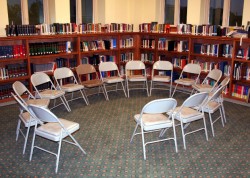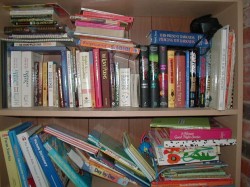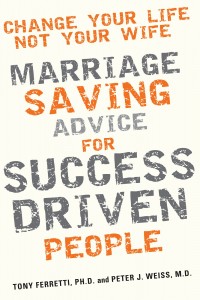How to start an HR/Talent management book club
I’ve talked with our local SHRM chapter in the past about possibly setting up a HR/talent management book club since it seems like it would be fairly easy to initiate and manage. Then a few weeks ago our 2013 president reached out to me again about the possibility of starting this group for real.
I’ll share the info I have and the meeting outlines for anyone who might be interested in starting their own HR book club.
For those of you who were wondering, this is different from the Company Book Club alternative that I discussed a while back. That’s a different concept and while I touch on book clubs there, this post is exclusively focused on the concept.Â
 HR management book club basics
HR management book club basics
We’ll look at books on how to manage people. We’ll look at books on managing change. We’ll look at books that laugh at the dumb things employees do that we have to deal with on a daily basis (yes, really!).
The group meets once a month at 8:00am on the third Wednesday morning at a local coffee shop for one hour.
I’m still trying to determine the number of books. One per quarter seems too low; one per month seems a bit much for some people.
Anyone is welcome to come; however, there will be a limit of ten or fifteen participants per meeting to meet space limits and encourage participation/discussion by the group members.
HR management book club agenda
Here’s the agenda I plan to work from:
- 8:00-8:10 welcome/socializing
- 8:10-8:50 book discussion (I can develop questions to bring or let the conversation roam; I’ll be prepared for either avenue)
- 8:50-9:00 prep for next meeting, closing thoughts/feedback, etc.
HR management book club selections
My first rule is this–all of the books should not be HR-related. Some should be, because we can all stand to be stronger in our area of expertise. However, we also need to expand beyond the HR arena into other areas of the business.
- Pick something about business operations.
- Pick something about personal development.
- Pick something about marketing.
I’m a fan of mixing prescribed and self-selected books to ensure the experience is more targeted to group interests while still expanding beyond “comfortable” book choices.Â
So how do you let the group pick self-selected books? Using the principles I outline for developing a 5 minute survey with free tools, you could set up a quick voting system to allow anyone in the group to vote for their own favorite options. Just pull a handful of titles from this page and let people vote on what sounds interesting.
Generating interest in your HR management book club
It’s easy to find book lovers. It’s much harder to get people who are on the fence or are crazy busy (who isn’t these days?) to commit. Here are a few tips for creating a book club that engages better than the traditional events:
- Encourage fluid commitment-people can attend on/off and only when they find the particular book interesting.
- Offer discussions via a LinkedIn group to allow for greater interaction between meetings.
- Have ways for people to interact even if they can’t attend meetings (LinkedIn, alternative meetups, etc.).
- Collect minutes/main ideas and distribute to all interested parties to spread the ideas further than the group and generate further interest (like the HR Roundtable Discussions).
And if all else fails, drop this classic line from selling expert Brian Tracy on the undecided:
To gain a competitive advantage in your career, read at least one hour per day in your chosen field. One hour a day will translate into approximately one book a week. One book a week will translate into approximately fifty books over the next twelve months. If you read an hour a day, one book per week, you will be an expert in your field within three years. Through continuous learning, you will be a national authority in five years, and you will be an international authority in seven years. All leaders are readers. Source
Love to hear some thoughts/feedback. Anyone have a book club they’ve participated in previously? What did/didn’t work?
 I was mulling that over, and then I remembered another book review I had done on
I was mulling that over, and then I remembered another book review I had done on  Company Book Club vs. Developing an Employee Reading Program
Company Book Club vs. Developing an Employee Reading Program Recently I learned of a unique team building session idea that I have been itching to try out. I was able to wrangle a friend into testing it out at her office, and it had very positive results. Today we’ll be looking at what I’ve come to call the Twenty Minute Challenge. (I heard someone at
Recently I learned of a unique team building session idea that I have been itching to try out. I was able to wrangle a friend into testing it out at her office, and it had very positive results. Today we’ll be looking at what I’ve come to call the Twenty Minute Challenge. (I heard someone at 
